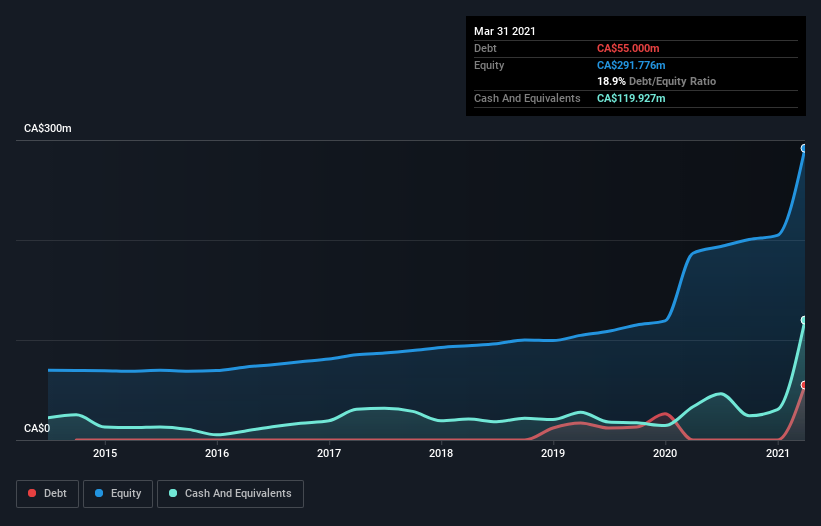Is Calian Group (TSE:CGY) A Risky Investment?
The external fund manager backed by Berkshire Hathaway's Charlie Munger, Li Lu, makes no bones about it when he says 'The biggest investment risk is not the volatility of prices, but whether you will suffer a permanent loss of capital.' So it might be obvious that you need to consider debt, when you think about how risky any given stock is, because too much debt can sink a company. Importantly, Calian Group Ltd. (TSE:CGY) does carry debt. But is this debt a concern to shareholders?
Why Does Debt Bring Risk?
Debt is a tool to help businesses grow, but if a business is incapable of paying off its lenders, then it exists at their mercy. If things get really bad, the lenders can take control of the business. However, a more common (but still painful) scenario is that it has to raise new equity capital at a low price, thus permanently diluting shareholders. Of course, debt can be an important tool in businesses, particularly capital heavy businesses. When we examine debt levels, we first consider both cash and debt levels, together.
View our latest analysis for Calian Group
What Is Calian Group's Net Debt?
As you can see below, at the end of March 2021, Calian Group had CA$55.0m of debt, up from none a year ago. Click the image for more detail. But on the other hand it also has CA$119.9m in cash, leading to a CA$64.9m net cash position.
How Strong Is Calian Group's Balance Sheet?
The latest balance sheet data shows that Calian Group had liabilities of CA$172.8m due within a year, and liabilities of CA$55.6m falling due after that. Offsetting this, it had CA$119.9m in cash and CA$186.0m in receivables that were due within 12 months. So it actually has CA$77.6m more liquid assets than total liabilities.
This short term liquidity is a sign that Calian Group could probably pay off its debt with ease, as its balance sheet is far from stretched. Simply put, the fact that Calian Group has more cash than debt is arguably a good indication that it can manage its debt safely.
Also good is that Calian Group grew its EBIT at 10% over the last year, further increasing its ability to manage debt. There's no doubt that we learn most about debt from the balance sheet. But ultimately the future profitability of the business will decide if Calian Group can strengthen its balance sheet over time. So if you want to see what the professionals think, you might find this free report on analyst profit forecasts to be interesting.
Finally, a company can only pay off debt with cold hard cash, not accounting profits. Calian Group may have net cash on the balance sheet, but it is still interesting to look at how well the business converts its earnings before interest and tax (EBIT) to free cash flow, because that will influence both its need for, and its capacity to manage debt. In the last three years, Calian Group's free cash flow amounted to 34% of its EBIT, less than we'd expect. That weak cash conversion makes it more difficult to handle indebtedness.
Summing up
While we empathize with investors who find debt concerning, you should keep in mind that Calian Group has net cash of CA$64.9m, as well as more liquid assets than liabilities. On top of that, it increased its EBIT by 10% in the last twelve months. So is Calian Group's debt a risk? It doesn't seem so to us. When analysing debt levels, the balance sheet is the obvious place to start. But ultimately, every company can contain risks that exist outside of the balance sheet. These risks can be hard to spot. Every company has them, and we've spotted 2 warning signs for Calian Group you should know about.
If you're interested in investing in businesses that can grow profits without the burden of debt, then check out this free list of growing businesses that have net cash on the balance sheet.
This article by Simply Wall St is general in nature. It does not constitute a recommendation to buy or sell any stock, and does not take account of your objectives, or your financial situation. We aim to bring you long-term focused analysis driven by fundamental data. Note that our analysis may not factor in the latest price-sensitive company announcements or qualitative material. Simply Wall St has no position in any stocks mentioned.
Have feedback on this article? Concerned about the content? Get in touch with us directly. Alternatively, email editorial-team (at) simplywallst.com.

